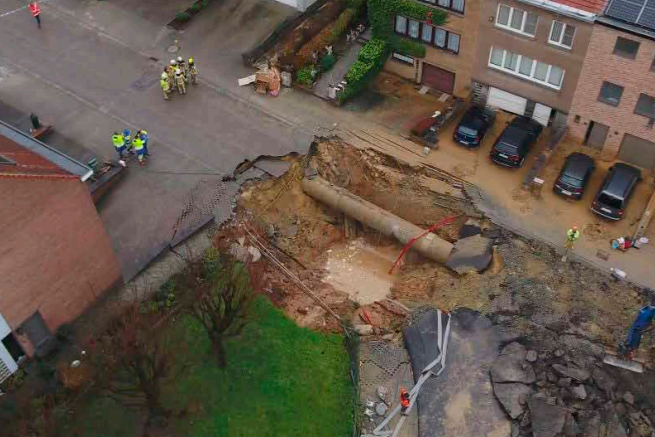

The Solutions Explorer lets you create alerts that match your needs. You can create several alerts and you will receive a notification each time a new Solar Impulse Efficient Solutions is labelled and matches your filters.
Your Search Alerts will show up here.
Sign in to create alerts for your filters and search terms.
Sign inDon't have an account?
Sign upDecember 23, 2018
Farys
Brakel

Farys is a Belgian drinking water supplier, maintaining close to 12,000 km of low-pressure water networks and 700 km of high-pressure piping, serving 1.4 million consumers in Flanders. In 2018, just before Christmas, a pipe burst interrupted the water supply by one of the high-pressure collectors transporting drinking water from the Brussels area towards Brakel. As part of Farys‘ incident response strategy, a BactoSense instrument was installed to monitor the microbial water quality during the repair work. The device proved particularly useful in validating the pipe flushing efficiency and assessing the effects of shock chlorination on the microbial load after the repair.
The immediate test results of BactoSense were of valuable assistance to the conventional water quality tests (heterotrophic plate counting) from the lab. They helped to prevent the supply reservoir from running empty.
The actual situation in terms of microbial contamination detection on drinking water plants is very slow and not reliable. First, the actual method takes 2-3 days to show any abnormal situation, time where population will get sick. Secondly, the actual procedure identify only a small percentage of bacteria (1-5%) as not all bacteria are able to growth on a dry nutrient support. The whole procedure requires 50 gr of plastic of lab consumable. The BactoSense device detects automatically in less than 30 min all bacteria in water directly coming from the process via a single sampling tube. When placed at the entry of the plant, the device acts as an early warning system in case of abnormal microbial conditions. When placed in other locations, process optimization can be generated with potential reductions of chlorine, impacting positively tap water acceptance and bottled water consumption (EU major initiative). On a 10 years basis, 1000 kg of plastic consumption and more than 3 to of CO2 can be avoided.
Share
The information set out above, is solely for the purposes of information and the Solar Impulse Foundation does not provide any guarantee as to its authenticity, completeness or accuracy. This information does not constitute investment advice or a recommendation to buy into, transact or to enter into any agreement with any of the parties or persons mentioned above. Potential investors or interested parties are solely responsible for their investment or business decisions and for performing any due diligence required by the circumstances. The innovator has asserted ownership of the intellectual property rights for images, videos, and content showcased above, affirming full and unrestricted usage rights, and has provided explicit permission for the Solar Impulse Foundation to publish such information designated as "public" in the application form.